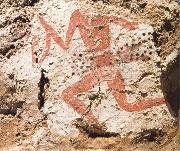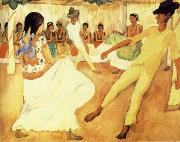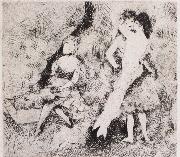Wholesale Oil Painting Reproductions No Minimum and Door to Door! |
|||||||||||
|
|
|||||||||||

|
|||||||||||
|
|
|
||||||||
All unknow artist Oil Paintings |
||||||||
|
|
||||||||
|
|
||||||||
|
Artist Introduction: |
||||||||
|
|
||||||||
|
Dancing Painting ID:: 42520 |
MK169
ca Hunt. 5800 v. Chr. Catal Huyuk, Turkey |
|||||||
Height Width |
INS/CM Quality |
|||||||
|
X |
| |||||||
|
|
||||||||
All Diego Rivera Oil Paintings |
||||||||
|
|
||||||||
|
|
||||||||
|
Artist Introduction: Mexican Social Realist Muralist, 1886-1957,Mexican muralist. After study in Mexico City and Spain, he settled in Paris from 1909 to 1919. He briefly espoused Cubism but abandoned it c. 1917 for a visual language of simplified forms and bold areas of colour. He returned to Mexico in 1921, seeking to create a new national art on revolutionary themes in the wake of the Mexican Revolution. He painted many public murals, the most ambitious of which is in the National Palace (1929 ?C 57). From 1930 to 1934 he worked in the U.S. His mural for New York's Rockefeller Center aroused a storm of controversy and was ultimately destroyed because it contained the figure of Vladimir Ilich Lenin; he later reproduced it at the Palace of Fine Arts in Mexico City. With Jose Clemente Orozco and David Alfaro Siqueiros, Rivera created a revival of fresco painting that became Mexico's most significant contribution to 20th-century art. His large-scale didactic murals contain scenes of Mexican history, culture, and industry, with Indians, peasants, conquistadores, and factory workers drawn as simplified figures in crowded, shallow spaces. Rivera was twice married to Frida Kahlo. |
||||||||
|
|
||||||||
|
|
Dancing Painting ID:: 44523 |
mk117
1935
48.1x60.6cm
|
||||||
Height Width |
INS/CM Quality |
|||||||
|
X |
| |||||||
|
|
||||||||
All Marie Laurencin Oil Paintings |
||||||||
|
|
||||||||
|
|
||||||||
|
Artist Introduction: French Painter, ca.1885-1956
French painter, stage designer and illustrator. After studying porcelain painting at the Sevres factory (1901) and drawing in Paris under the French flower painter Madelaine Lemaire (1845-1928), in 1903-4 she studied at the Academie Humbert in Paris, where she met Georges Braque and Francis Picabia. In 1907 she first exhibited paintings at the Salon des Independants, met Picasso at Clovis Sagot gallery and through Picasso was introduced to the poet Guillaume Apollinaire. Laurencin and Apollinaire were soon on intimate terms, their relationship lasting until 1912. |
||||||||
|
|
||||||||
|
|
Dancing Painting ID:: 52909 |
mk224
23.8x26.9cm
1927
|
||||||
Height Width |
INS/CM Quality |
|||||||
|
X |
| |||||||
|
|
||||||||
|
Prev Next
|
||||||||
|
|
||||||||
|
Related Paintings to Marie Laurencin :. |
||||||||
|
|
||||||||
|
CONTACT US |



